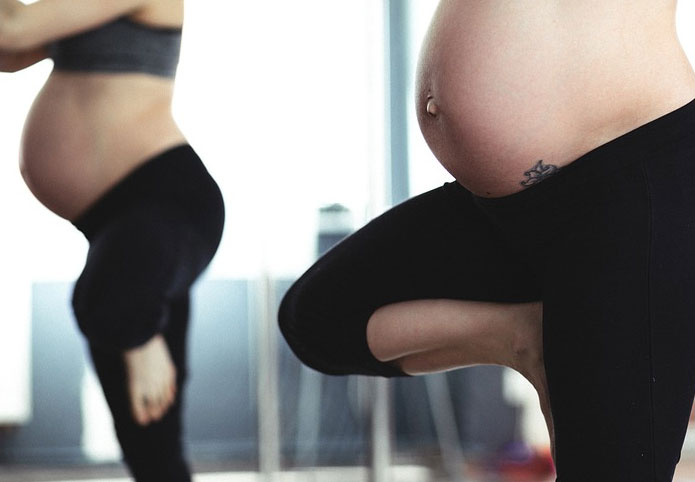Physical activity of moderate intensity is recommended on most days throughout pregnancy, for at least 30 minutes. An activity is moderate intensity if it increases your breathing and heart rate, but not so much that you can’t talk comfortably.
Moderate intensity activities
- Brisk walking
- Cycling
- Swimming
- Aqua aerobics
- Dancing
- Pilates
- Low-impact aerobics
You can continue to perform moderate intensity exercise throughout the last three months of pregnancy. However, no more than three sessions per week of intense exercise is recommended. If you have high blood pressure or other medical conditions, check with your health professional before exercising.
If you were regularly active before pregnancy, you can usually continue that level of exercise. Check with your doctor and follow the advice given about what is safe when exercising in pregnancy. You may need to change the type, duration and intensity of the activity.
Starting off slowly
If you were inactive or sedentary before becoming pregnant, it is best to start off slowly, for example, 15 minutes of activity about three times per week. Once you are used to this, gradually increase to 30 minutes per session then increase the frequency. Check with your doctor before you start a new exercise program.
If you find it hard to exercise for 30 minutes, try breaking up the session into three ten-minute sessions. This can be helpful when you are starting a new program or as your pregnancy progresses. Combine moderate intensity exercises with lower intensity activities which could include:
- Pelvic floor muscle exercises – these are important to help control your muscles during labour and avoid problems such as haemorrhoids or a leaky bladder. See pelvic floor exercises.
- Take the stairs instead of the lift or elevator.
- Park further away from your destination and walk the rest of the way.
- Walk to see the neighbour or a friend instead of calling.
- Walk or ride when you just need to make a short trip to the shop or post box.
- If you are feeling short of breath or light-headed you are pushing yourself too hard.
The aim of staying physically active during pregnancy is to get your blood pumping and muscles working enough to get toned and release endorphins. Exercise shouldn’t cause body aches and pains so if you are experiencing issues, talk to your doctor.
Want to know more?
Sports Medicine Australia – Exercise during pregnancy
Better Health Channel – Pregnancy and exercise
Pregnancy, Birth and Baby – Exercising during pregnancy
If you still have questions, contact our Parenting Line
